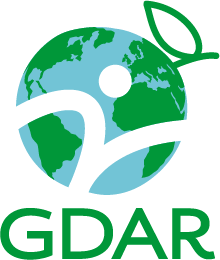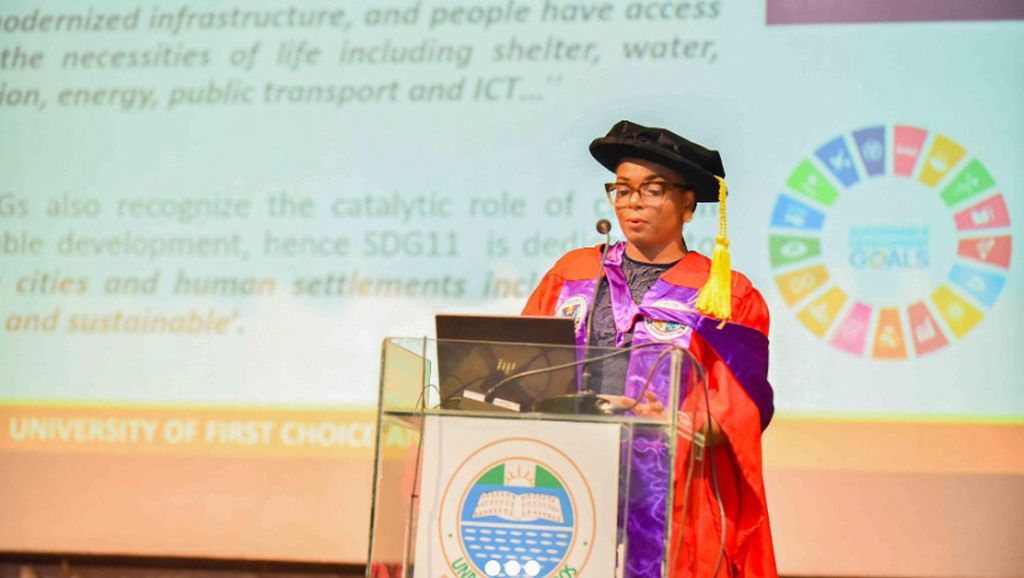This blog is the third in a series of captivating narratives and insights from experienced researchers working in LMICs with at least 15 years of impact. Our Early Career Researchers (ECRs) delve into the inception of their careers and personal journeys, and the experiences and exposures that shaped their trajectories.
By Damilola Odekunle on behalf of the ECR team.
The career journey of Taibat Lawanson, Professor of Urban Management and Governance
It was the last day of a week-long event – Global Diet and Activity Research (GDAR) Annual General Meeting at the Wolfson College, University of Cambridge, in October 2022. Excited ECRs gathered in one of the College’s classrooms to glean lived experiences and career journey stories being shared by senior academics of the GDAR Network. One of the senior academics was Taibat Lawanson, a Professor of Urban Management and Governance at the University of Lagos, Nigeria.
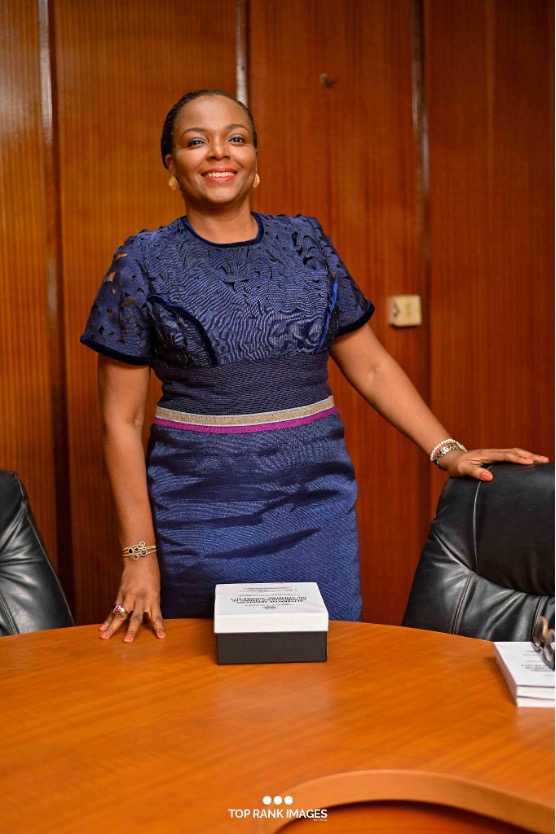
Taibat leads the Pro-poor Development Research Cluster and Urban Resilience Working Group, at the University of Lagos. She is also the Co-Director of the University of Lagos Centre for Housing and Sustainable Development and is a Principal Investigator in the GDAR Network. The insightful discussion with Taibat offered tips for dealing with academic power imbalance, achieving success, and navigating work/life balance.
However, before sharing these tips, let’s double back to where Taibat started … the beginning.
Where it all started
As a young, aspiring urban planner, Taibat was admitted into the Federal University of Technology Akure in 1993 for her first degree, where she spent the next five years studying for a B.Sc. in Urban and Regional Planning. Between 2000 and 2003, Taibat moved onto complete her postgraduate studies in geography and education administration and planning at the University of Lagos. In 2010, she gained a doctoral degree in Urban and Regional Planning at the Federal University of Technology Akure while lecturing at the University of Lagos.
The acts …
As a talented academic, Taibat has worked up the academic ladder over the past two decades: from senior lecturer to a professor of urban management and governance. Owing to her staunch interest in social complexities, urban realities and spatial justice in Africa, she has more than 70 publications singly and jointly authored with other scholars. Her research focuses on issues relating to urban informality, environmental justice and pro-poor development, and can often be found in opinion piece platforms such as The Conversation, International Growth Centre and peer-reviewed academic journals including Urban Studies, Area Development and Policy, International Journal of Environmental Research and Public Health, Cities & Health, among others. (Read more about Taibat’s publications).
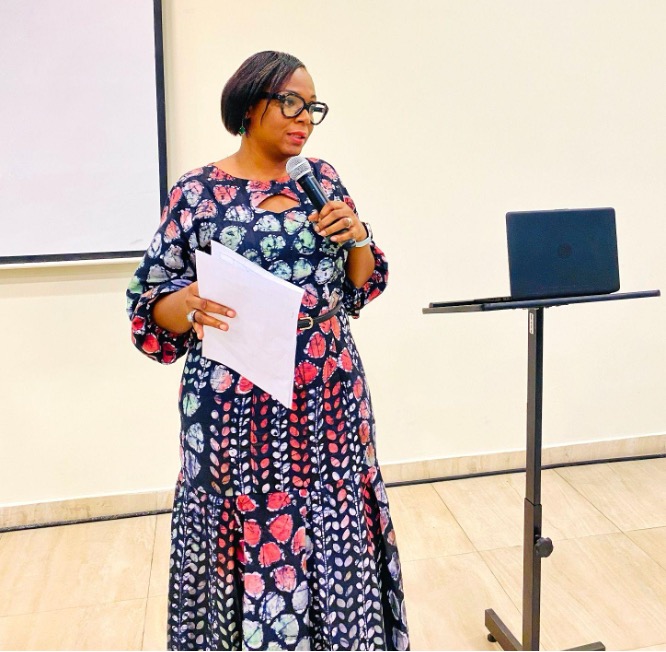
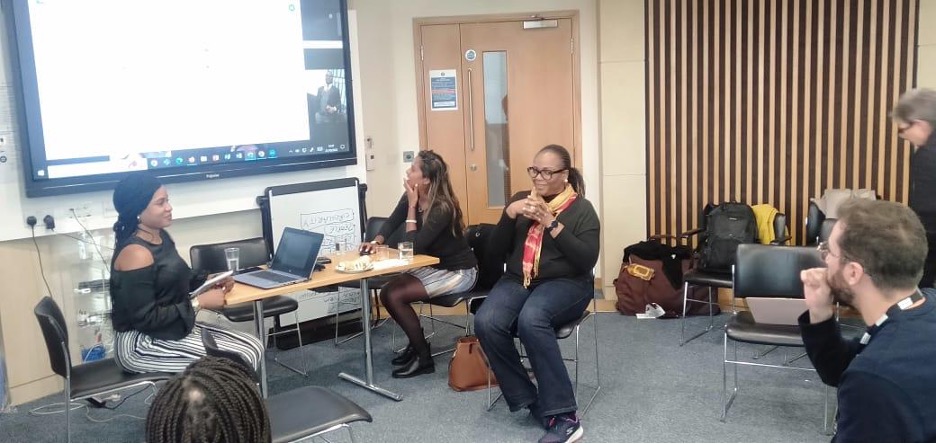
Navigating academic power imbalance
As with every professional, Taibat has encountered a few challenges. She acknowledged having to deal with academic power imbalance throughout her career. Speaking with the ECRs, she encouraged them to be assertive and trust their instincts in every situation. However, she warned to always sound things out at every opportunity, emphasising the importance of being a collaborator – working with a range of people, older and younger – instead of a narrator.
Advice for success
According to Taibat, without a strong self-awareness, discipline, sacrifice, and zest for success her feats would have been unachievable. She emphasised the need to stay fully committed, hardworking, and disciplined while consciously building team relationships. For Taibat, “having a sound support system around can go a long way as it would be easy to ask for help”, albeit she suggested paying for outsourcing if necessary.
Taibat shared that ECRs should always use their initiative and work out what they want to do, even if they don’t know how to get there. She also stressed the importance of publishing in academic journals and staying up to date with new ideas, knowledge, and technology. While recognising that publishing is essential to a researcher’s successful career, Taibat underlined that ECRs must look beyond attaining a title. Instead, an ECR should “enjoy becoming a researcher, an expert in a chosen field, someone whose opinions matter by publishing blogs, opinion pieces etc.”
Being researchers, Taibat also encouraged ECRs to position themselves with the right funder organisations and sponsors; however, she cautioned that it is essential to weigh up consequences and think through the “whys” and the impact of their work while ensuring their outlooks align with the funders. Taibat also advocates that, “ECRs should take advantage of conferences and the sponsorships that come with them as it would validate and open them up to other networks.”
Pause, take stock, recharge
“Researchers consistently have to juggle multiple responsibilities, but ECRs must sacrifice what can be sacrificed while ensuring they are not just doing the work but enjoying life along the way” says Taibat. She also added that some of the tricks which aided her academic journey over the years included her doing what was essential and urgent first. Prioritising helped her make the most of each day and the best of what she had. She suggested that ECRs must prioritise what they consider necessary to avoid burnout, highlighting that it is crucial to rest (for personal reasons and otherwise) as there will always be deadlines or challenges ahead.
Family support was not overlooked during my conversation with Taibat, as she urged ECRs to always involve their family in their projects, similar to having a solid external support system. With family around, Taibat shared that ECRs will have a safe space to share burdens and victories, pause, take stock, and recharge.
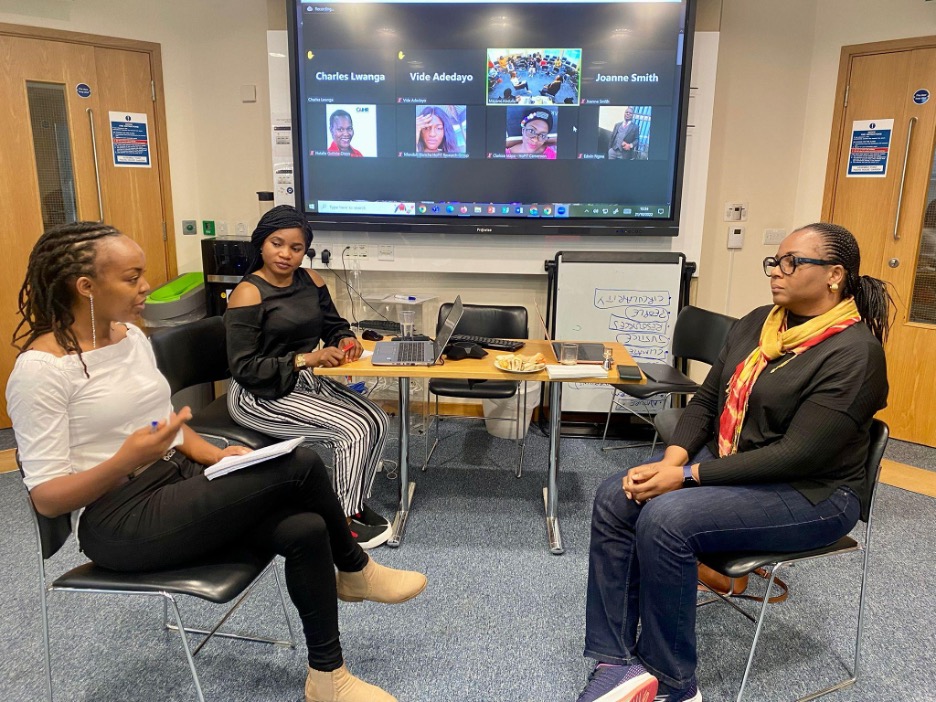
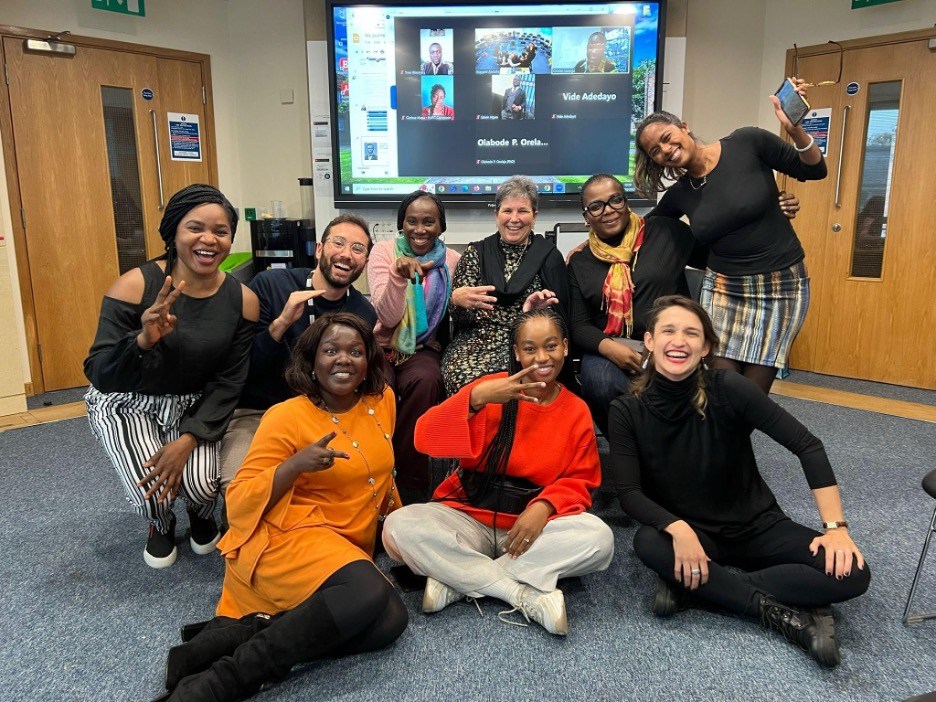
Taibat’s journey’s continues
Taibat is a member of the board of directors of the Lagos Studies Association, a member of the steering committee of Future Earth Urban Knowledge Action Network and the International Advisory Committee of the UN-HABITAT flagship State of the World’s Cities Report. She is a pioneer World Social Science Fellow of the International Social Science Council, a Fellow of the Nigerian Institute of Town Planners, and an alumna of the Rockefeller Foundation Bellagio Centre. Taibat is famous for her transdisciplinary work, which engages students, policymakers, local communities, and civil society actors.
